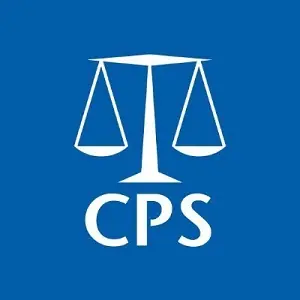The Crown Prosecution Service (CPS) plays a crucial role in the criminal justice system of the United Kingdom and was established in 1986.
The CPS is responsible for prosecuting criminal cases that have been investigated by the police and other investigative organisations in England and Wales. The CPS is independent and make decisions independently of the police and government.
Stephen Parkinson is the current Director of Public Prosecutions. He was appointed by the Attorney General and took up post on 1st November 2023. He will step down at the end of October 2028 when his five-year appointment as head of the CPS comes to an end.
The Director of Public Prosecutions (DPP) is the third most senior public prosecutor after the Attorney General (AG) and the Solicitor General (SG).
History of the Crown Prosecution Service
The Crown Prosecution Service traces its roots back to the ancient office of the Director of Public Prosecutions (DPP), which was created in 1879 by the Prosecution of Offences Act 1879.
It was not until the Prosecution of Offences Act 1985 that the CPS officially came into existence. The Act aimed to streamline the prosecution process and create an independent authority responsible for making prosecution decisions.
Functions and Responsibilities
- Prosecutorial Decision-Making: One of the primary functions of the CPS is to make fair and independent decisions about whether to prosecute individuals accused of committing criminal offenses. The CPS reviews evidence gathered by the police and decides whether there is sufficient evidence to proceed with a case.
- Preparing and Presenting Cases: The CPS is responsible for preparing cases for court and presenting evidence during trials. They work closely with the police, victims, and witnesses to ensure a robust prosecution. Crown Prosecutors present the case on behalf of the state, aiming to secure a conviction and promote public confidence in the justice system.
- Victim and Witness Support: The CPS places significant importance on supporting victims and witnesses throughout the criminal justice process. They provide assistance, advice, and information to ensure their voices are heard and their rights are protected. This support helps to build confidence in the justice system and facilitates the fair treatment of all parties involved.
Organisational Structure
The CPS operates in England and Wales, divided into fourteen geographical Areas. Each Area is headed by a Chief Crown Prosecutor (CCP), responsible for managing the prosecution services within their jurisdiction. At the national level, the Director of Public Prosecutions (DPP) leads the CPS and oversees its operations.
Independence and Accountability
To maintain its independence and impartiality, the CPS operates separately from the police and other law enforcement agencies. Prosecutors must act in the interests of justice and consider the public interest when making prosecution decisions. However, they are also accountable for their decisions and must provide reasons for not prosecuting cases where the evidence is insufficient.
Evolving Challenges and Reforms
The CPS continually adapts to meet the challenges posed by an evolving criminal landscape. It has responded to technological advancements and new types of crime, such as cybercrime and terrorism, by developing specialised units and expertise. Additionally, reforms have aimed to improve efficiency and effectiveness, ensuring timely and fair justice for all.
Key Achievements
Over the years, the CPS has achieved several significant milestones. Notably, it played a pivotal role in implementing the Victims’ Right to Review Scheme, giving victims the right to request a review of a CPS decision not to prosecute. The CPS has also been at the forefront of initiatives to combat hate crime, violence against women, and child exploitation.
Conclusion
The Crown Prosecution Service serves as the backbone of the UK’s criminal justice system. Through its independent and fair decision-making, preparation of cases, and support for victims and witnesses, the CPS upholds the rule of law and ensures justice for all.
As it continues to evolve and adapt to changing circumstances, the CPS remains committed to its fundamental principles of fairness, accountability, and public interest.
We recommend you should always seek formal legal advice if required, from a qualified and reputable lawyer (solicitor or barrister).
We have a number of links to Free Legal Resources and Legal Organisations on our Free Legal Advice , Legal Aid and Pro Bono pages.
Read the reviews of Gavin Howe Barrister
“He is awful, underhanded and should not be practising law!”
Latest Articles
- What is a Paralegal ?A paralegal is a legal professional who performs tasks that require knowledge of legal concepts but does not hold the… Read more: What is a Paralegal ?
- What is a Judgment ?A judgment, also known as a judicial decision or court ruling, is the final decision made by a court of… Read more: What is a Judgment ?
- What is an Adverse Inference ?Adverse inference is a legal principle that plays a significant role in various areas of law, including criminal, civil, and family law. It arises… Read more: What is an Adverse Inference ?
- BarristersA barrister is anyone who has been Called to the Bar in England and Wales. For a barrister to offer… Read more: Barristers




